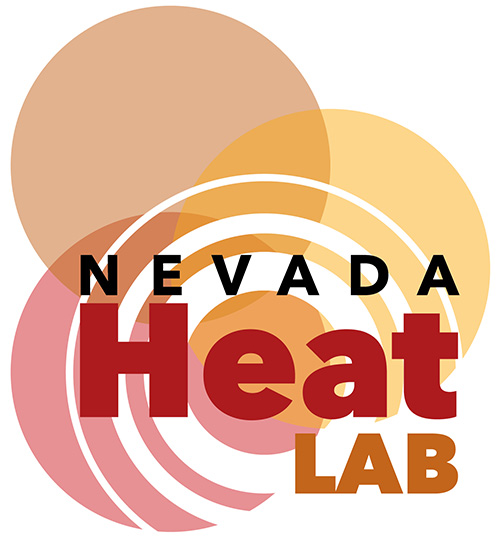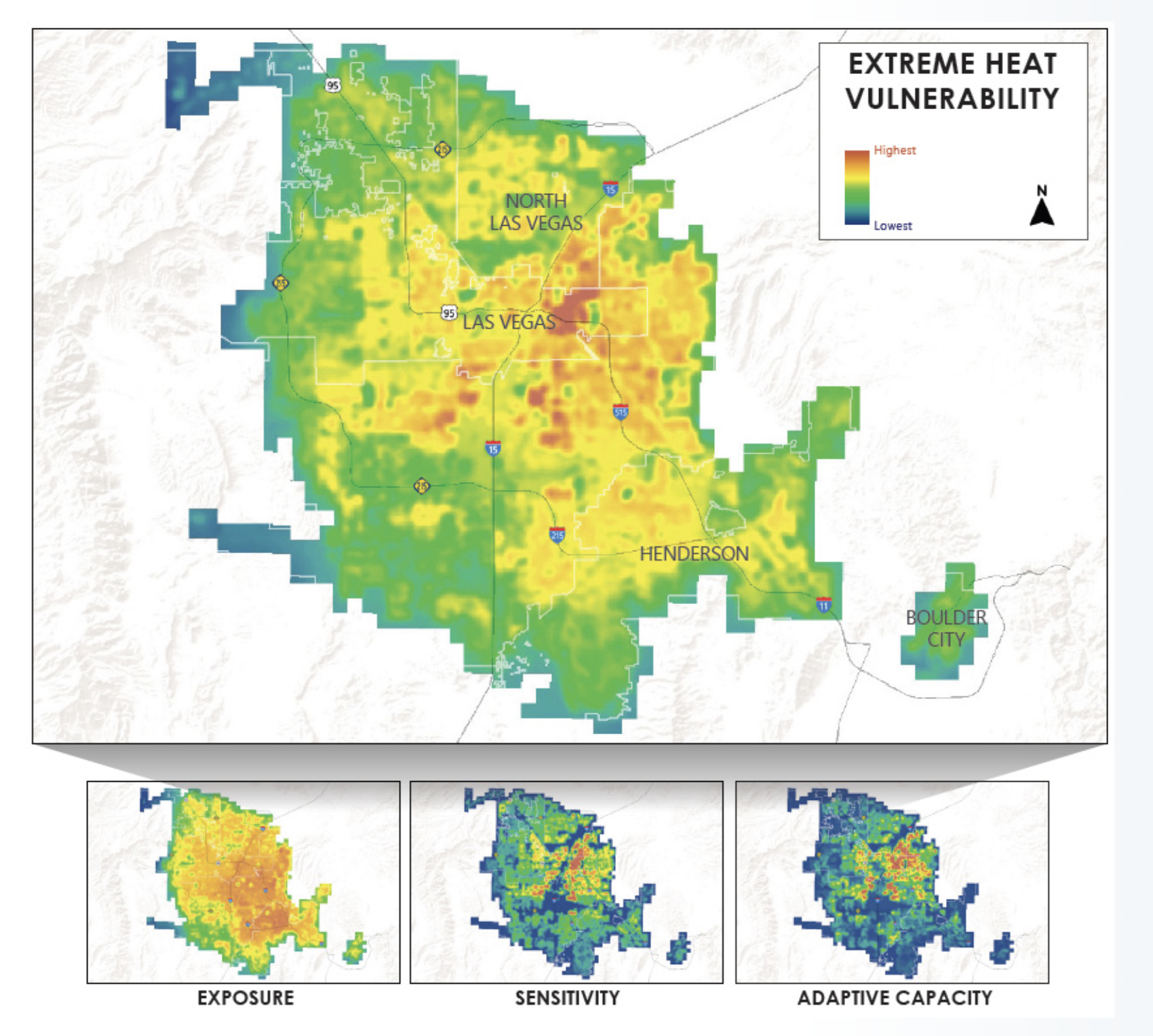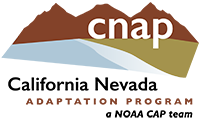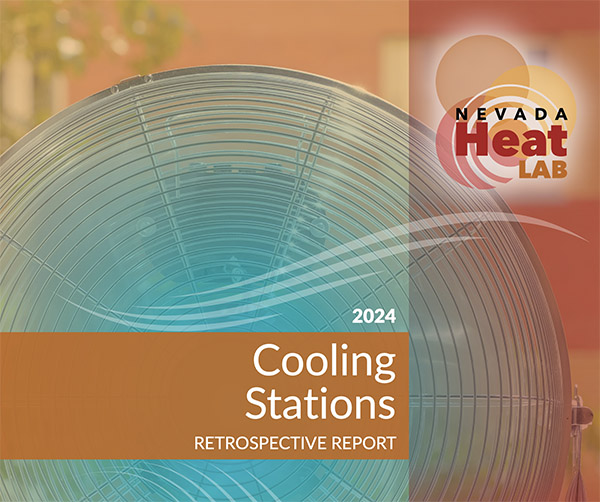THE NEVADA HEAT LAB
CALIFORNIA NEVADA ADAPTATION PROGRAM

Our mission is co-creating heat adapted communities for a resilient economic future.
Project Description: Southern Nevada and the Las Vegas Metro Area are critical to the state’s economy but are among the most vulnerable to extreme heat. Of the multiple climate stressors, extreme heat is one of the most pressing issues for the region (Figure 5). Las Vegas already experiences frequent extreme heat, exacerbated by the urban heat island (UHI) effect which causes cities and developed areas to be warmer than surrounding areas. As in other regions, extreme heat events in Southern Nevada impact populations differently based on their socio-economic status, ethnicity, vocation, and other characteristics (State of Nevada, 2020). People’s vulnerability, behavioral responses to information about heat events and adaptive responses differ across populations, all of which affect the impact on individuals and the larger community.
The Nevada Heat Lab is a regionally focused social learning space developed around a community of practice on extreme heat management and health that brings together public service providers (social services, urban planners, emergency responders, etc.) who understand the needs of their communities and are active in implementation decisions with researchers, and experts who can bring new data, modeling, and design options in an iterative process of mutual learning. It builds on the “urban lab” approach, which brings together urban planners and community organizations with researchers who assist in designing potential solutions. Social learning labs develop integrative solutions that account for the complexity of the social, built, biophysical, and technological systems, build new relationships between those active in implementation and research scientists create new learning opportunities, and can spur new areas of scientific and applied research (Hassan, 2014). The SNHRL will focus on extreme heat events, accounting for the complexities of exposure levels to extreme heat, economic sector, information needs for decision makers, and concerns such as growth and increasing water scarcity. This approach will increase the capacity for Southern Nevada to address extreme heat and implement effective adaptation to support economic growth and livable communities.

These maps show where in the Las Vegas metro area people are most vulnerable to extreme heat. Red colored areas represent where people are most vulnerable, exposed and least able to adapt to extremely hot temperatures.
PROJECT GOAL
The goal for this project is to develop effective strategies for reducing the temperatures that people experience in their daily lives that are suitable for different socio/built environments and diverse populations. The Nevada Heat Lab centers the co-production of heat adaptation and resilience strategies with the people and communities that are most impacted by heat. Centering these communities can better leverage local knowledge to develop and promote implementable heat adaptation approaches.
FEATURED RESEARCHERS
Meet Ariel Choinard
Ariel Choinard, M.A., started at DRI in February 2023 as the project coordinator for the California-Nevada Adaptation Program (CNAP) and the new Southern Nevada Heat Resiliency Lab. She is working with Tamara Wall, Ph.D., to build connections between scientists, community members, and community organizations to co-produce solutions, adaptations, and resilience to climate hazards. Choinard came to DRI after working as the Urban Heat Resilience Fellow for Clark County and is based at DRI’s Las Vegas campus.
Meet David Almanza
David Almanza, Ph.D., joined DRI this summer as a postdoctoral researcher in urban climate adaptation. He is working with Ariel Choinard in the Nevada Heat Lab to examine how heat is impacting communities in and around Las Vegas. Born in Bogota, Colombia, Almanza grew up in Las Vegas and completed his Ph.D. at the University of Nevada, Las Vegas, in 2023.
Meet Cayenne Engel
Cayenne Engel, M.Sc., is a Staff Research Scientist in urban climate adaptation who joined DRI in September 2024. Based at DRI’s Las Vegas campus, she is dedicating her time to assessing and expanding the region’s urban tree canopy to bring relief to communities burdened by temperatures that regularly soar above 100° Fahrenheit. As an integral part of the Nevada Heat Lab, her work builds on that of her colleagues to develop effective strategies for reducing temperatures in one of the nation’s fastest-warming cities.
MORE INFORMATION
Ariel Choinard
Ariel.Choinard@www-dev.dri.edu
Tamara Wall, Ph.D
Tamara.Wall@www-dev.dri.edu




